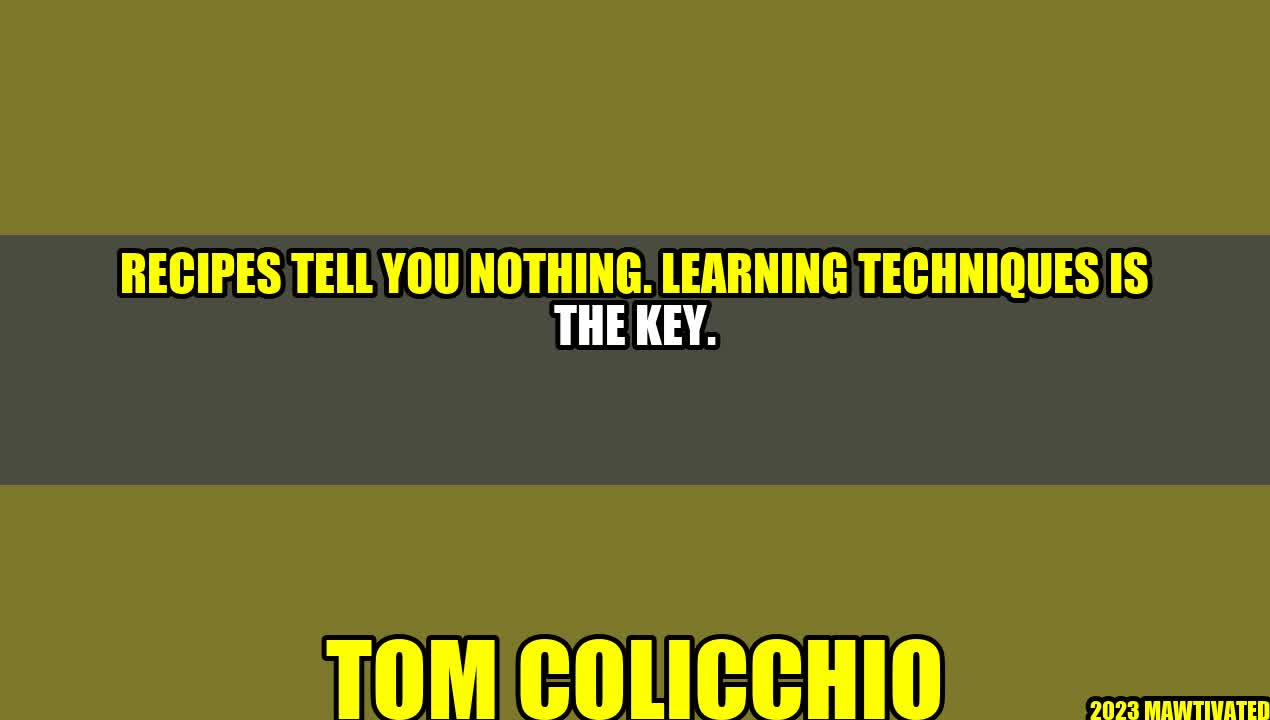Learning Techniques is the Key to Cooking Success

I’ve always been passionate about cooking. It’s a pleasure to make something delicious and share it with others. However, it wasn’t until I started working as a professional cook that I truly understood the importance of learning techniques instead of just relying on recipes.
Author Story – Tom Colicchio
Tom Colicchio is a famous American chef, restaurateur, and television personality known for his work in the culinary industry. He started his career washing dishes and working on the line in local restaurants. He eventually became an executive chef and went on to open his own restaurants, such as Craft and Gramercy Tavern.
Colicchio is a strong advocate for learning techniques in the kitchen. In his book “Think Like a Chef,” he writes, “Recipes tell you nothing. Learning techniques is the key. Once you have a technique, you can tailor it to your own tastes.”
Why Techniques Matter
Recipes are certainly helpful when you’re first starting out in the kitchen. They provide a blueprint for how to make a dish and often offer useful tips and tricks. However, if you only follow recipes without learning the underlying techniques, you’ll never truly develop your skills as a cook.
Think about it this way: a recipe is like a map. It tells you how to get from point A to point B, but it doesn’t teach you anything about how to navigate the terrain. Learning techniques, on the other hand, is like developing a sense of direction. Once you know how to use a knife or how to sear a steak, you can experiment with different ingredients and make countless variations of a dish.
Examples of Techniques
- Knife skills – learning how to chop, slice, and dice vegetables and other ingredients
- Searing – browning the surface of meat or fish to create a flavorful crust
- Braising – slowly cooking cuts of meat in liquid to make them tender and flavorful
- Baking – using heat to cook food evenly in the oven
- Emulsifying – combining two liquids that normally wouldn’t mix (such as oil and vinegar) to create a smooth sauce or dressing
“Technique is everything in cooking. Without technique and a good foundation, you cannot create something special.” – Chef Eric Ripert
Practical Tips
If you want to improve your cooking skills, here are some practical tips:
- Read cookbooks and watch cooking shows to learn new techniques
- Take a cooking class or workshop in person or online
- Practice, practice, practice – don’t be afraid to make mistakes and try new things
- Invest in quality equipment, such as a sharp chef’s knife and a heavy-bottomed skillet
- Pay attention to the details, such as seasoning and temperature, to elevate your dishes
Conclusion
In summary, learning techniques is the key to becoming a skilled and creative cook. While recipes can be a helpful starting point, they only scratch the surface of what’s possible in the kitchen. By taking the time to learn the fundamentals of cooking, you’ll be able to create dishes that are uniquely your own. So don’t be afraid to experiment, make mistakes, and enjoy the process!
In conclusion, here are three key takeaways:
- Recipes are a starting point, but learning techniques is essential for developing your skills as a cook
- Techniques such as knife skills, searing, braising, baking, and emulsifying can elevate your cooking game
- To improve your skills, read cookbooks, take classes, practice, invest in quality equipment, and pay attention to the details

Curated by Team Akash.Mittal.Blog
Share on Twitter
Share on LinkedIn